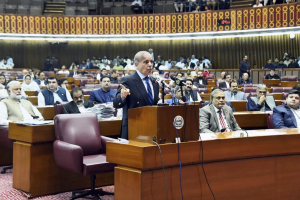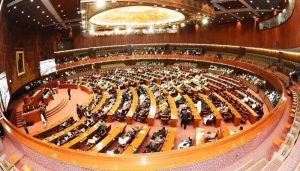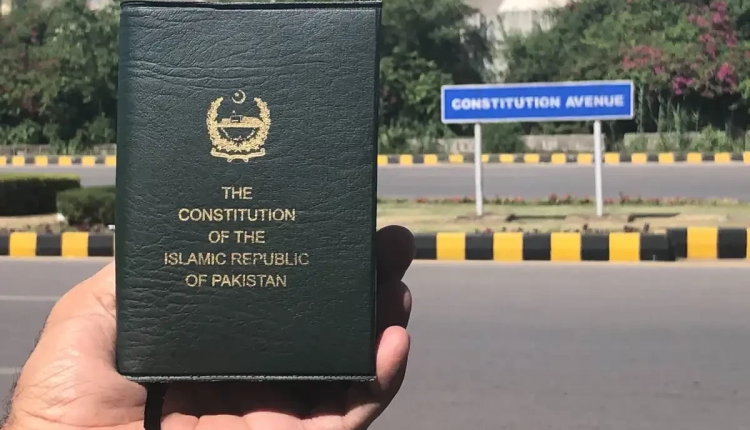Pakistan’s 26th Amendment – Judicial Reform or Political Shift?
A Turning Point for Judicial Reform
The recent passage of Pakistan’s 26th Constitutional Amendment is a defining moment in the country’s political and judicial landscape. This amendment, passed in October 2024 by Pakistan’s National Assembly, focuses on judicial reforms to improve transparency, accountability, and efficiency within the judiciary. With wide-ranging political and legal implications, this amendment is both a reflection of growing political consensus on reforms and a source of debate regarding its potential impacts.
Key Changes Introduced by the Amendment
One of the most significant changes introduced by the 26th Amendment is the restriction of the Chief Justice of Pakistan’s (CJP) term to three years. Prior to this, the CJP’s tenure was indefinite and based on seniority, allowing some chief justices to serve longer periods, depending on their age of appointment. This change is intended to prevent the long-term consolidation of power in one individual and ensure a more dynamic rotation in the leadership of Pakistan’s judiciary. Limiting the term could also bring fresh perspectives and potentially encourage the judiciary to adapt more quickly to societal and legal developments.
In addition, the amendment revises the selection process of the CJP. Instead of automatically appointing the most senior judge, the Chief Justice will now be chosen from among the top three senior judges of the Supreme Court. This small but notable change introduces an element of choice, theoretically allowing for more nuanced consideration of the candidate’s experience and qualifications. However, it also opens up the process to potential political maneuvering, as the decision is now less strictly determined by seniority.
Another critical aspect of the 26th Amendment is the establishment of constitutional benches in the Supreme Court. These specialized benches will handle constitutional cases, which often involve complex legal issues with broad social, economic, or political implications. The creation of these benches is expected to expedite case resolution, reduce the backlog of cases, and ensure that constitutional matters are addressed by judges with specific expertise. This could greatly improve the efficiency of Pakistan’s judicial system, which has been criticized for its slow case processing and extensive delays, often leaving plaintiffs waiting for years or even decades for justice.
The Political and Legal Context of the Amendment
The 26th Amendment did not emerge in a vacuum. Calls for judicial reforms have been growing for years, spurred by dissatisfaction with the judiciary’s role in disqualifying elected officials and issuing suo moto notices (the court acting on its own initiative without a formal complaint). These powers, although intended to maintain checks and balances, have often been controversial, especially when they led to the dismissal of elected governments. Critics argue that the judiciary has overstepped its mandate, wielding disproportionate influence over political matters. The 26th Amendment, by reining in some of these powers, is seen as an attempt to restore a balance between the judiciary and the executive.

The political history behind this amendment can be traced back to the 2006 Charter of Democracy (CoD), a document signed by Pakistan’s two largest political parties, the Pakistan Muslim League-Nawaz (PML-N) and the Pakistan People’s Party (PPP). The CoD aimed to strengthen democratic institutions and processes by limiting the military’s involvement in politics and reducing political interference in the judiciary. The 26th Amendment echoes some of these principles by formalizing the judicial reforms outlined in the CoD, particularly concerning judicial appointments and the role of the legislature in maintaining checks on the judiciary.
Political Support and Opposition
Despite its potential benefits, the 26th Amendment has not been without controversy. While it received broad support from the ruling coalition and opposition parties like PPP, PML-N, and Jamiat Ulema-e-Islam-Fazl (JUI-F), some factions have voiced serious reservations.
Supporters argue that these reforms are essential for preserving Pakistan’s fragile democracy and ensuring that the judiciary does not overstep its role. They contend that by reducing the CJP’s tenure and limiting the automatic seniority-based selection process, the amendment will help prevent the judiciary from becoming too powerful. This, in turn, could help protect elected governments from being disqualified by the courts, a problem that has plagued Pakistan’s political landscape in recent years. Many supporters believe that these changes will also streamline the judicial process and reduce the backlog of cases that has overwhelmed Pakistan’s courts.
However, critics—including members of the Pakistan Tehreek-e-Insaf (PTI)—have raised concerns that the reforms could undermine the judiciary’s independence by increasing the legislature’s influence over judicial appointments. They argue that the process of selecting the Chief Justice from among the three most senior judges opens the door to political interference, as parties in power may attempt to influence the selection in their favor. This could potentially politicize the judiciary and erode its impartiality. Furthermore, opponents have criticized the speed with which the amendment was passed, arguing that more time should have been devoted to public debate and consultation with legal experts to fully assess its implications.
The opposition’s concerns also extend to the broader implications of the reforms. For example, by limiting the term of the Chief Justice, the amendment might inadvertently weaken the leadership of the judiciary, making it more difficult for the CJP to implement long-term strategies or reforms within the court system. Critics also fear that the changes to the selection process could exacerbate tensions within the judiciary, as judges vie for the top position.
The Impact on Governance and the Judiciary
The 26th Amendment’s impact on Pakistan’s political and judicial systems could be profound. If successfully implemented, the reforms have the potential to improve the efficiency of the judiciary, reduce case delays, and ensure that constitutional matters are handled by specialized benches. This could help restore public confidence in the judicial system, which has been eroded by years of slow processing and perceived political interference.
By limiting the CJP’s term and involving the legislature in judicial appointments, the amendment could also create a more accountable and transparent judicial system. However, much will depend on how these reforms are implemented in practice. If the new processes for appointing judges and establishing constitutional benches are not handled transparently, they could exacerbate existing problems rather than solve them.
In terms of governance, the amendment could help protect elected governments from judicial overreach, potentially allowing them to complete their terms without fear of being disqualified by the courts. This, in turn, could contribute to greater political stability, which has long been elusive in Pakistan. However, the amendment could also create new tensions between the judiciary and the legislature, particularly if the process of appointing judges becomes politicized.

Challenges Ahead
Despite the potential benefits of the 26th Amendment, several challenges lie ahead. One of the biggest concerns is whether the reforms will genuinely address the deep-rooted problems within Pakistan’s judicial system, particularly the issue of case backlogs. While the establishment of constitutional benches is a step in the right direction, it remains to be seen whether these benches will have the capacity and resources to handle the large volume of cases currently pending in the courts.
Another challenge is ensuring that the process of appointing judges remains free from political interference. The involvement of the legislature in judicial appointments could potentially politicize the judiciary, undermining its independence and impartiality. If the judiciary is perceived as being too closely aligned with the ruling party, public trust in the courts could decline, leading to further political instability.
Finally, the success of the 26th Amendment will depend on the willingness of political leaders and judges to work together to implement these reforms. If political parties use the new judicial appointment process to further their own interests, the reforms could backfire, leading to greater division and conflict within the judiciary.
Will the 26th Amendment Truly Strengthen Pakistan’s Judiciary?
The passage of the 26th Constitutional Amendment in Pakistan is a significant step toward judicial reform and political stability. By limiting the tenure of the Chief Justice, establishing constitutional benches, and involving the legislature in judicial appointments, the amendment seeks to address some of the longstanding issues within Pakistan’s judiciary. However, the success of these reforms will ultimately depend on how they are implemented and whether they genuinely improve the efficiency and accountability of the judicial system. While the amendment has the potential to restore a balance of power between the judiciary and other branches of government, it also faces significant challenges and risks that must be carefully managed in the coming years.

